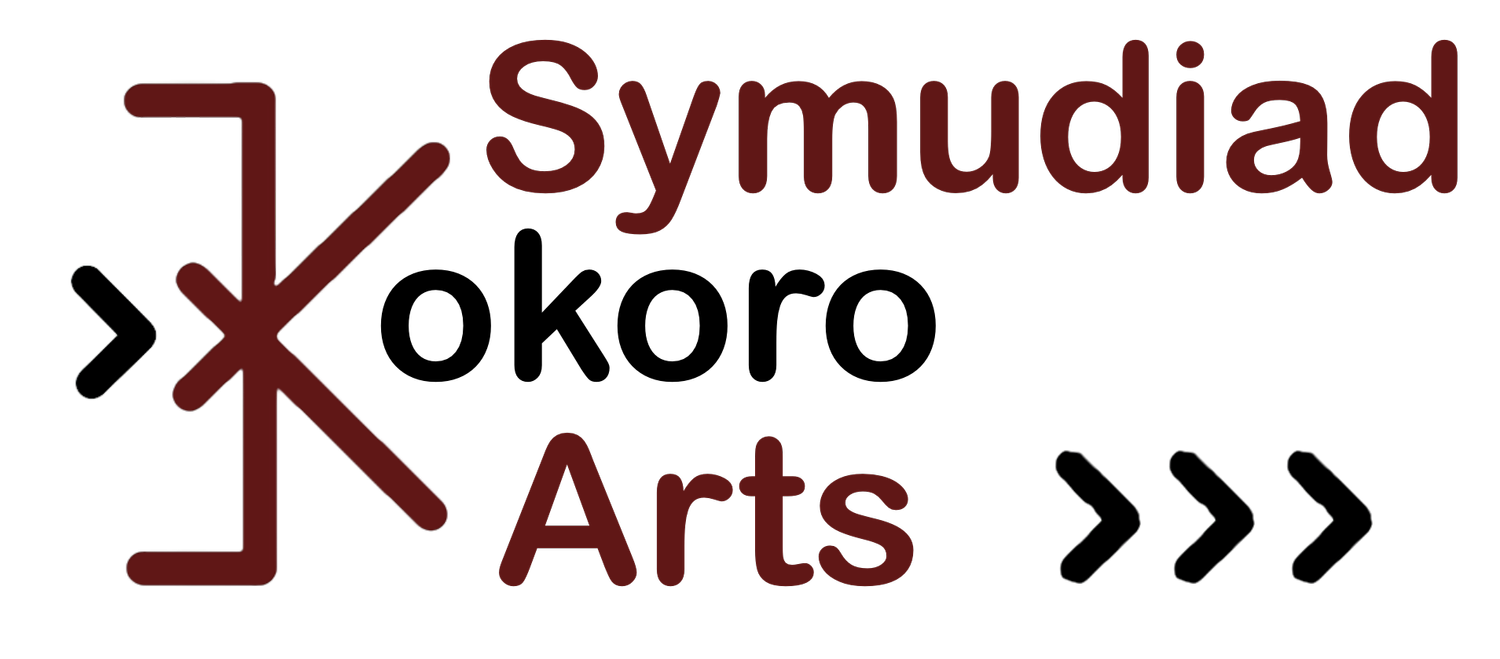Emerging Artists: Access, Inclusion, Connection
We are slowly approaching the finish line for our pilot development programme for early career movement artists who value accessibility and inclusivity. This project is funded by Arts Council Wales’ ‘Connect and Flourish’ scheme and it places anti-ableist actions and perspectives at the centre of developing the next generation of movement artists in Wales.
“Something I have learned throughout the process is the importance of the language we use, especially when referring to marginalised groups of people, and ensuring that their voices and opinions are being centred in that conversation. Although I am anti-ableist, I discovered through the workshops that some of the terminology I was using was potentially harmful or offensive to disabled people.” A.Howells, Artist
Meet the partners (opens in a new tab)
We are pleased with the engagement of partners and their ability to make collective, and devolved decisions. It has been clear that ‘top down’ decision making is still the norm working in the arts sector in Wales, so we have been working on finding new strategies to challenge this.
Meet the Artists (opens in a new tab)
Five early career Artists were offered the opportunity to learn and develop their knowledge and explore methods of integrating Access and Inclusion into their movement practices through participation in Flourish Sessions and creating their own digital work in progress. They also participated in development sessions with sector professionals such as a producer and composer and received 1-2-1 mentoring to support their artistic/career journey on this project and beyond.
Associate Artists:
Marla King
Freya Dare
Roisin Murphy-Mortimer
Eluned Owen
Becky Johnson
Amber Howells
Nadine Turk
Natasha Dawkes
Over the recruitment period we received many applications from a wide range of incredible early career movement artists. We decided to open up the project to eight more Associate Artists to give them a bursary to engage in the Flourish Sessions.
Session facilitators:
Stephanie Back
Suzie Birchwood
Eadyth Crawford
Amy Doughty
Matthew Gough
Tafsila Khan
Cathryn McShane-Kouyate
Megan Pritchard (NDCW)
Chris Ricketts
UCAN
Mentors:
Bev Lennon,
Cathy Boyce
Gemma Coldicott
Keith Murrell
Rachel Pedley
***
Our series of Flourish Sessions (professional development workshops/discussions) were open to participants and all partners. The focus of these sessions was to raise awareness of inequality in arts, listen to diverse voices and perspectives, learn how to approach making movement based art works that are inclusive and accessible.
“From these Flourish sessions I've been able to recognise where and how my practise is lacking and even more importantly, what I need to do to fix that. For example, I recognise my work is very visually biased (..).” B. Johnson, Associate Artist
These sessions included themes such as:
Multilingual Work - BSL led sessions addressing Access & Inclusion from a deaf perspective; multilingual creative processes; Eng-Welsh-BSL interpreter’s perspective. The knowledge was shared with the artists working through practical tasks, breakout rooms and discussions. These sessions took the deepest explorations into terminology (e.g. social model of disability) and tested the tough practical tasks, and open conversation.
Audio Description - Open conversations exploring audio descriptions for blind and visually impaired audiences as well as practical tasks reviewing ‘test’ audio descriptions that participants had created themselves, and a ‘pitching’ session. Drawing on facilitator’s skills as a consultant, she shared perspectives, strategies and her own route into consultancy.
“One thing I’ve started to change in how I work is thinking of alternatives to communicating concept. I’ve realised all of my work to date has only been visually communicative, so I’m now starting to explore communicating concept through other senses.” A. Sirina, Artist
Access and Inclusion in workspace - Sessions to introduce Universal Design of Instruction and how it applies to dance. A mix of practical tasks, and contextualised examples of integrated dance. A BSL led workshop with games and tasks that explored access & inclusion and helped underline the importance of BSL using leaders in the space. Offered clear suggestions for how to work inclusively, so that all creatives feel enabled/‘heard’ rather than isolated. A session that offered overview to working with Blind and visually impaired audiences, and artists, delivered in Cymraeg and English.
Mediating Dance - Exploring the many facets of mediating dance for screen.
Accessible Media - Tools, and methods to make social media and communication materials accessible. Lots of detail and practical advice with examples from NDCW and other organisations offering resources and technologies. The artists were encouraged to practice by making their own social media accessible. NDCW funded this session as part of their commitment to sector collaboration and the cultural contract.
“Something that has surprised me to find out is how exclusive the arts and society can be for disabled people. Discovering this has had a huge impact on my work and particularly after the Universal Design sessions, I have changed my approach on teaching dance and I am aiming to make my classes truly inclusive and accessible for all.” N. Turk, Associate Artist
“I didn't realize how restricted my art was before attending these sessions and it has made me think of new ways to make sure I create work that is accessible for everyone.” N. Dawkes, Associate Artist
The is a clear sense of ongoing learning about Access & Inclusion practices, alongside a greater understating of how the sector needs to respond. We are mapping the actions that need to be undertaken, internally and externally, with particular attention to how they fit into wider, longterm sector imperatives.
